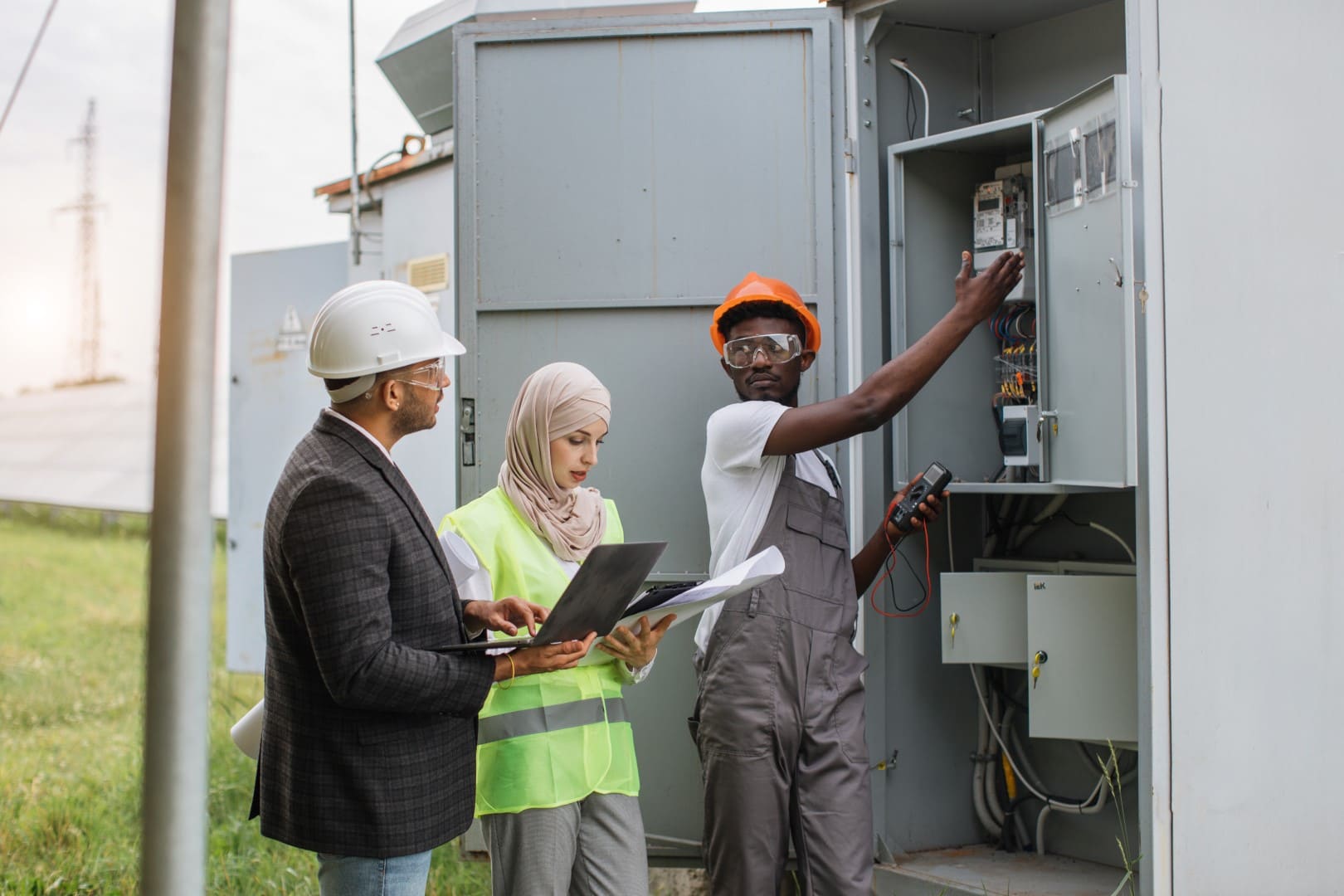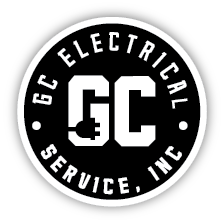Electrical contractors play a crucial role in new construction projects, ensuring that electrical systems are installed safely, efficiently, and up to code. Their expertise — from designing the electrical layout to overseeing installations and inspections — is essential for completing any building project. Whether it’s a residential development or a commercial property, electrical contractors ensure that all electrical systems meet the required standards and are built to last.
Key Responsibilities of Electrical Contractors
Electrical contractors are vital in successfully executing construction projects, from small residential homes to large commercial buildings. Their expertise ensures that electrical systems are functional and meet all safety standards and regulations. Electrical contractors are responsible for every process step, from the initial design to the final inspection, ensuring the entire electrical infrastructure is reliable and built to last.
Designing the Electrical System
One of the primary responsibilities of electrical contractors is designing the electrical system for new construction projects, mapping out where outlets, switches, and lighting fixtures will be installed, and determining how the system will connect to the building's power source. Contractors must consider energy efficiency, safety, and the property's needs. A well-designed electrical system is critical to ensuring that the building's electrical services are safe, reliable, and meet the demands of future occupants.
Installing Wiring and Components
After the electrical system design is completed, electrical contractors install the wiring, outlets, switches, and other necessary components. This stage requires high precision to ensure all connections are secure and the wiring is properly protected. Contractors must adhere to all local and national electrical codes during installation, ensuring the system will operate safely and efficiently. Proper installation is key to avoiding issues such as short circuits, faulty wiring, or electrical failures.
Managing Electric Contracts and Budgeting
Electrical contractors are responsible for the technical aspects of electrical work and for managing the electric contracts associated with the project. These responsibilities include budgeting for materials, labor, and any unforeseen expenses that may arise during the project. Contractors must work closely with builders, architects, and other professionals to ensure the electrical work stays on schedule and within budget. Effective contract management ensures that the electrical aspect of the construction is completed on time and within financial constraints.
Ensuring Code Compliance and Safety
One of the most important duties of electrical contractors is to ensure that all electrical work complies with safety regulations and building codes. This compliance includes conducting inspections throughout the installation process to confirm that all wiring, circuits, and components are installed correctly. Electrical contractors also play a key role in ensuring the building's electrical system is safe and free from potential hazards, such as faulty wiring or overload risks. Regular inspections and code compliance checks are essential to avoiding safety violations and ensuring long-term reliability.
Testing and Final Inspections
Before the construction project can be completed, electrical contractors must test the entire electrical system to ensure it is fully operational. This testing includes checking for issues such as voltage irregularities, loose connections, or malfunctioning components. Contractors also perform a final inspection to ensure the system meets all safety and operational standards. Once these tests and inspections are completed, the building's electrical system is ready for use, and the electrical contractors can confidently sign off on the project.
Critical Responsibilities Handled by Electrical Contractors
The expertise of electric contractors is essential for the safe and efficient completion of any construction project. Their responsibilities range from designing and installing electrical systems to managing contracts and ensuring safety compliance. By overseeing every process step, electrical contractors help guarantee that new buildings are equipped with reliable electrical systems that meet all safety standards and future needs. Their role is not only about installation but also about long-term safety, code compliance, and ensuring the building's electrical infrastructure can support future growth and technological advancements. Without the critical work of electrical contractors, construction projects would face delays, safety risks, and operational inefficiencies. Their involvement is vital for both short-term success and the longevity of the building's electrical system.

Five Essential Skills of Electrical Contractors in Construction
Electrical contractors play a critical role in the success of construction projects, handling everything from electrical system design to final installation. To ensure the project runs smoothly and adheres to safety standards, contractors must possess a wide range of skills. These essential skills help complete the project on time and ensure that the electrical systems are safe, reliable, and compliant with all regulations.
1. Comprehensive Knowledge of Electrical Systems
An electrical contractor must deeply understand electrical systems, including wiring, circuit design, and power distribution. This knowledge allows them to plan and execute complex electrical installations in residential and commercial construction projects. Contractors must also stay updated on the latest electrical technology and materials advancements to provide the best solutions for their clients. Whether installing new systems or addressing electrical emergency services, a contractor’s expertise ensures that every aspect of the project is handled professionally and safely.
2. Strong Problem-Solving Abilities
Electrical contractors must be excellent problem-solvers. Construction projects often involve unforeseen challenges, such as discovering faulty wiring or handling changes in design mid-project. Contractors must be able to think on their feet and devise practical solutions to keep the project moving forward without compromising safety or quality. Their ability to troubleshoot issues quickly, whether it’s a malfunction in the system or the need for emergency electrical services, is crucial to minimizing downtime and avoiding costly delays.
3. Project Management and Coordination Skills
Managing a construction project requires more than just technical expertise. Electrical contractors must coordinate their work with other trades, such as plumbers, carpenters, and HVAC technicians, to ensure that all systems integrate seamlessly. Effective project management includes scheduling, budgeting, and ensuring that all phases of the electrical work are completed on time. Contractors must be able to organize their teams, manage resources, and communicate with clients and other construction professionals to meet deadlines and avoid conflicts.
4. Attention to Detail and Precision
Precision is critical in electrical work. A small mistake, such as an incorrect wiring connection or a miscalculated circuit, can lead to significant problems, including safety hazards or system failures. Electrical contractors must be meticulous, ensuring that every connection, outlet, and breaker is installed correctly. This attention to detail helps prevent future issues and ensures the electrical system operates efficiently and safely for years.
5. Knowledge of Safety Standards and Regulations
Electrical contractors must have a thorough understanding of safety regulations and building codes. Ensuring that all electrical work complies with these standards is crucial to protecting the property and its occupants. From securing proper permits to implementing safety measures on the job site, contractors must prioritize safety at every project step. When electrical contractors are well-versed in safety codes, they can minimize the risk of accidents and ensure that the project passes all necessary inspections.
Essential Expertise of Electric Contractors in Construction
The success of any construction project depends heavily on the expertise of electric contractors. Their comprehensive knowledge, problem-solving skills, attention to detail, and understanding of safety standards are key to delivering high-quality, compliant electrical installations. These skills ensure the safety and functionality of electrical systems and contribute to the overall success and smooth progression of construction projects.
Evaluating Electrical Contractor Proposals
Choosing the right electrical contractor for your project begins with thoroughly evaluating their proposal. This proposal outlines the scope of work, budget, timeline, and other crucial details that will impact the success of your construction or renovation project. Understanding how to assess these proposals ensures you select a contractor who will provide quality service while staying within your budget and meeting deadlines.
Reviewing the Scope of Work
The scope of work is one of the most essential elements of any electrical contractor's proposal. It outlines the contractor's tasks, including installation, upgrades, or repairs. Look for specific details about the work involved, whether a new electrical installation, rewiring, or electric repair. A comprehensive scope of work ensures a clear understanding of the project's requirements and helps you gauge whether the contractor has accounted for all aspects of the job.
Comparing Pricing and Budget Breakdown
Price is always a key factor in evaluating proposals, but it's essential to understand what you are paying for. Compare the pricing structure of different contractors and assess whether the budget includes all necessary materials, labor, and potential contingencies. Be wary of unusually low bids, which may indicate cut corners, leading to poor-quality work. Ensuring that the budget accommodates any possible issues, such as the need for electric repair, can save you from surprise costs later in the project.
Assessing the Timeline and Project Milestones
A detailed timeline is crucial to keep the project on track. Electrical contractor proposals should include milestones for each stage of the work, from initial setup to final inspections. Ensure the timeline aligns with your project goals and allows room for unforeseen delays. An efficient contractor will provide a realistic timeframe, especially for complex tasks like rewiring, without compromising quality or safety.
Verifying Licensing and Experience
When evaluating proposals, verifying that the contractor holds the proper licensing and certifications is essential. These credentials ensure they are qualified to handle the electrical work safely and comply with local codes. Additionally, consider the contractor's experience with similar projects. Whether the job involves large-scale installations or smaller tasks like electric repair, their previous experience should match the complexity of your project.
Ensuring Safety and Compliance Measures
Safety is a top priority in any electrical project, and the proposal should reflect the contractor's commitment to meeting all safety regulations and building codes. It should also outline how the contractor will maintain a safe working environment and conduct regular safety checks throughout the project. Proper safety measures, especially for tasks like rewiring, are essential to protect contractors and the property from potential hazards during the project.
The Role of Electric Contractors in Project Success
Thoroughly evaluating proposals ensures that your electric contractors can deliver quality work on time and within budget. By carefully reviewing the scope of work, pricing, timeline, and safety measures, you can select a contractor to ensure the project's success and long-term protection. Proper evaluation leads to a more efficient and reliable electrical system, safeguarding your property's electrical infrastructure for years.
Visit our GC Electrical Service Inc. blog for more insights on how electric contractors contribute to successful projects.


